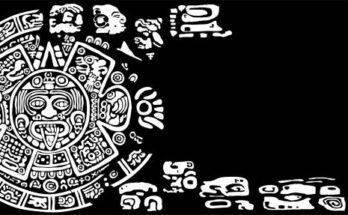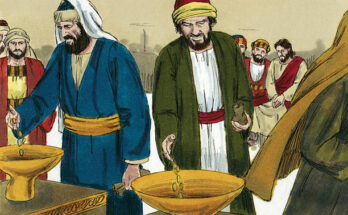The Age of Enlightenment, spanning roughly from the late 17th to the 18th century, was a period marked by a profound shift in intellectual and philosophical thought. This era championed reason, science, and individualism, challenging the traditional authority of monarchies and religious institutions. As the Enlightenment unfolded across Europe, it brought about a revaluation of the role of religion in society. This article explores how religion navigated the turbulent waters of reason and faith during the Age of Enlightenment, examining the key thinkers, debates, and outcomes that shaped the religious landscape of the time.
The Enlightenment Mindset
 (Photo from iStock)
(Photo from iStock)
Central to the Enlightenment was the elevation of reason as the primary tool for understanding the world. Thinkers like René Descartes, John Locke, and Voltaire advocated for the use of reason and empirical evidence to challenge superstition and dogma. The scientific method became a symbol of intellectual progress, fostering a spirit of inquiry that extended into religious domains.
Individualism and Personal Liberty
This emphasis on personal liberty posed a challenge to religious authorities that had historically held sway over people’s lives. Concepts like freedom of thought and religious tolerance gained prominence, encouraging individuals to question established religious doctrines and explore their own beliefs.
God as the Divine Clockmaker
One significant religious development during the Enlightenment was the rise of Deism. Deists, including influential figures like Thomas Paine and Benjamin Franklin, believed in a rational, impersonal God who created the universe and set it in motion like a finely tuned clock. This metaphorical “Clockwork Universe” suggested that God, having established natural laws, did not intervene in the daily affairs of the world.
The Challenge to Divine Revelation
Deism posed a direct challenge to traditional religious views that emphasized divine revelation and miracles. Enlightenment thinkers argued that human reason, rather than revealed truths, should guide beliefs and decisions. This shift contributed to a more critical examination of religious texts and doctrines, with an increasing number of individuals questioning the authority of religious institutions.
Voltaire: The Pen as a Mighty Sword
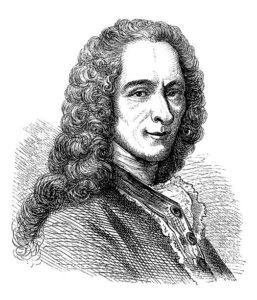 (Photo from iStock)
(Photo from iStock)
Voltaire, a prominent figure of the Enlightenment, was a fierce critic of organized religion. Through his writings, such as “Candide” and his philosophical dictionary, Voltaire lampooned religious intolerance, superstition, and abuses of power within the Church. His satirical approach exposed the contradictions between religious ideals and the realities of the time, influencing many to revaluate their beliefs. Hence, he becomes inseparable from age of enlightenment.
David Hume and the Limits of Human Understanding
Scottish philosopher David Hume tackled religious beliefs from a different angle. In his works, Hume questioned the foundations of religious knowledge, challenging the notions of causality, miracles, and the nature of God. Hume’s sceptical inquiries into the limitations of human understanding had a profound impact on religious philosophy, prompting a reassessment of traditional theological arguments.
Religious Toleration and Pluralism
Influenced by John Locke’s ideas on religious tolerance, many argued that individuals should be free to practice their faith without fear of persecution. Moreover, this emphasis on religious freedom laid the groundwork for the development of more inclusive and diverse societies.
Challenges to Ecclesiastical Authority
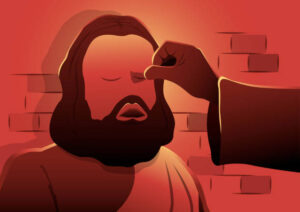 (Photo from iStock)
(Photo from iStock)
The Enlightenment’s call for religious toleration challenged the authority of ecclesiastical institutions. As people gained the freedom to explore diverse religious perspectives, the power of religious authorities to dictate beliefs and practices waned. Further, this shift marked a departure from the dogmatic control that the Church had exerted for centuries.
The Catholic Church and the Counter-Enlightenment
The Catholic Church, a traditional bastion of religious authority, faced significant challenges during the Enlightenment. The Church’s resistance to the ideas of reason and individual freedom led to tensions with Enlightenment thinkers. The suppression of certain scientific and philosophical works, such as Galileo’s heliocentric theories, highlighted the Church’s struggle to adapt to the changing intellectual landscape.
Protestantism and Fragmentation
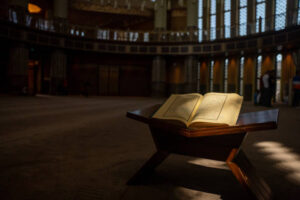 (Photo from iStock)
(Photo from iStock)
Within Protestantism, the Enlightenment led to internal debates and fragmentation. Some Protestant denominations embraced the spirit of reason and individualism, while others resisted the Enlightenment’s influence. Furthermore, the diversity of responses within Protestantism reflected the broader societal shifts occurring as a result of Enlightenment ideals.
Enlightenment Values in Contemporary Society
The Enlightenment’s influence on religion persists in modern society. The emphasis on reason, individualism, and religious freedom continues to shape debates on topics such as secularism, human rights, and the relationship between science and faith. Enlightenment values have become integral to the foundations of many democratic societies, influencing legal systems and social norms.
Challenges and Reinterpretations
While the Enlightenment fostered positive developments in religious tolerance and individual freedom, it also sparked challenges and reinterpretations. Some critics argue that the Enlightenment’s emphasis on reason and science led to a secularization of society. Contributing to a decline in religious adherence. Moreover, others contend that the Enlightenment’s legacy provides a framework for reconciling faith with reason in the contemporary world.
Conclusion
The Age of Enlightenment was a transformative period that reshaped the intellectual, cultural, and religious landscape of Europe. Religion, facing the challenges posed by reason and individualism, underwent a process of revaluation and adaptation. The rise of Deism, religious scepticism. Evidently, the call for religious toleration marked significant shifts in how individuals engaged with and perceived their faith.
The Enlightenment’s legacy, with its emphasis on reason, individual liberty, and religious freedom, continues to influence the modern world. The tension between faith and reason, a central theme of the Enlightenment, remains a topic of debate and exploration. As society grapples with the complexities of belief in an era dominated by scientific inquiry and pluralism. Eventually, the Enlightenment’s contributions to the ongoing dialogue between religion and reason remain both relevant and enduring.
In the aftermath of the Enlightenment, religion faced a dichotomy: adaptation to reason or resistance to change. This period birthed enduring tensions, shaping contemporary discussions on faith, individual autonomy, and the delicate balance between religious traditions and Enlightenment values.



